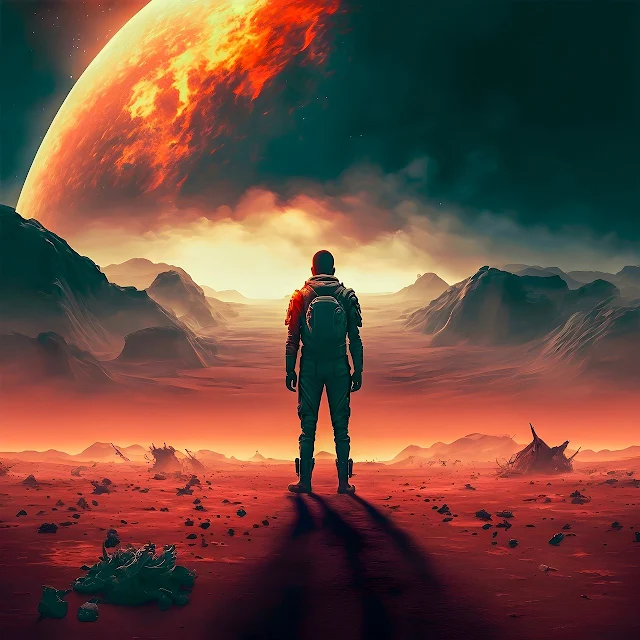The first step came with the establishment of Mars Colony One, a sprawling habitat designed to sustain human life. Spearheaded by a coalition of countries, the project combined cutting-edge technology with the ambition of a united humanity. By 2050, the first wave of pioneers arrived on the rusty, red planet.
Among them was Dr. Maya Chen, an astrobiologist who had dedicated her life to exploring the potential for life beyond Earth. She stepped onto the Martian surface, her boots crunching against the fine dust, heart racing with excitement and fear. The landscape stretched before her, a barren beauty bathed in hues of red and orange, a stark contrast to the lush greens of Earth.The colony was a marvel of engineering. Domes made of transparent materials shielded inhabitants from radiation while allowing them to gaze at the Martian sky. Inside, vertical farms thrived, producing crops that would sustain the settlers. Solar panels lined the exterior, harnessing the sun’s energy to power life support systems.
As Maya settled into her new life, she worked tirelessly in the laboratories, studying the soil and atmosphere for signs of microbial life. The thrill of discovery fueled her passion, but the reality of Martian living weighed heavily on everyone. Isolation and the harsh environment tested their resolve. They were pioneers in a world that felt both exciting and daunting.
Months passed, and the colony began to flourish. New arrivals brought fresh perspectives, skills, and hope. Engineers developed hydroponic systems, while artists painted murals that depicted Earth’s landscapes, reminding everyone of what they had left behind. The settlers formed tight-knit communities, sharing stories and forging friendships that transcended borders.
One day, as Maya conducted experiments in the greenhouse, a breakthrough occurred. She discovered a unique strain of bacteria in the Martian soil that thrived in extreme conditions. This microorganism could potentially revolutionize life on Mars by converting carbon dioxide into oxygen. Excitedly, she gathered her colleagues to discuss the implications.
“This could be our key to terraforming,” Maya explained, her eyes shining. “If we can manipulate its growth, we might be able to create a more hospitable environment for future generations.”
The news spread like wildfire, igniting hope throughout the colony. The dream of turning Mars into a second home felt tangible. But with hope came challenges. The colony had to balance scientific ambition with the ethical implications of altering an entire ecosystem. Debates raged among the settlers, but they ultimately decided to proceed cautiously, guided by the principle of stewardship.
Years passed, and as the colony expanded, families grew. Children were born on Mars, the first generation of Earth-born Martians. They played in the dust and dreamed of flying to distant moons. Maya often found herself watching them, filled with a mix of pride and responsibility. The future of humanity on Mars depended on their resilience and adaptability.By 2075, Mars Colony One had transformed into a thriving city known as New Horizon. Advanced technologies allowed for sustainable living, and terraforming efforts began to reshape the landscape. Lush gardens blossomed within biodomes, and the atmosphere slowly thickened, creating a more temperate climate.
One evening, as Maya stood outside her dome, she gazed at the stars. Earth was a distant blue dot in the sky, but she felt connected to it in a profound way. Mars was no longer just a barren wasteland; it was a tapestry of human dreams, stitched together with hope, struggle, and determination.
As she watched the children playing, she realized that they would inherit a world shaped by choices made by their parents and the sacrifices of those who came before them. Mars was more than a new home; it was a second chance, a fresh start for humanity.
And in that moment, she felt a sense of peace. The journey had just begun, and the stars were within reach.












0 Comments